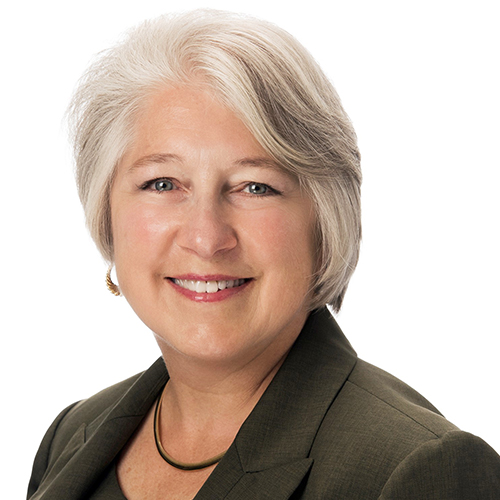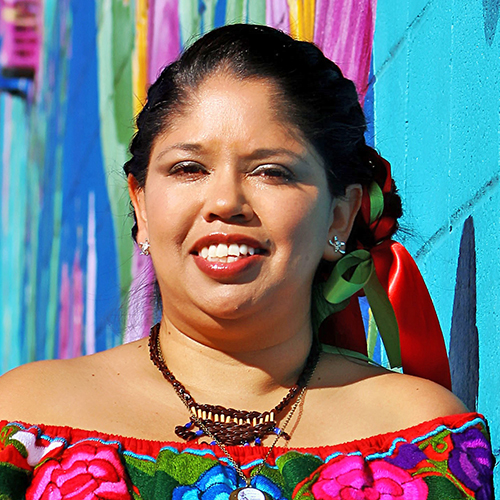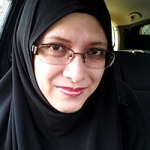 Peer Support for Breastfeeding Online Course(s) & Continuing Education
Peer Support for Breastfeeding Online Course(s) & Continuing Education
Access the latest clinical skills and research for Peer Support for Breastfeeding for Lactation & Breastfeeding professional training. These Peer Support for Breastfeeding online courses provide practice-changing skills and valuable perspectives from leading global experts. This Peer Support for Breastfeeding education has been accredited for a variety of CEUs / CERPs and can be accessed on-demand, at your own pace.


Kiddada Green is the founding executive director of Black Mothers’ Breastfeeding Association, co-‐creator of Black Breastfeeding Week, founding member of the National Association of Professional and Peer Lactation Supporters of Color, lead consultant for the First Food Friendly Community Initiative, and an esteemed member of the inaugural class of the W.K. Kellogg Foundation’s Community Leadership Network Fellowship Program. She is committed to supporting families, and training maternal child health professionals on culturally appropriate breastfeeding support. As an expert in community-‐centered approaches, she put forth recommendations for The U.S. Surgeon General’s Call to Action to Support Breastfeeding, has been featured in Ebony Magazine, and is a program reviewer for the American Public Health Association. She is a published writer for Breastfeeding Medicine and an avid learner. Kiddada holds a Bachelor’s Degree from Michigan State University and a Master’s Degree in the Art of Teaching from Oakland University.
This presentation provides clear and concise methods for maternal-‐child-‐health professionals and home visiting programs to become active supporters of breastfeeding families. The information shared is both for the novice and the experienced. Learn ways to build partnerships, improve advocacy and set organizational policies that are supportive of increased breastfeeding rates.

View Details / Enroll
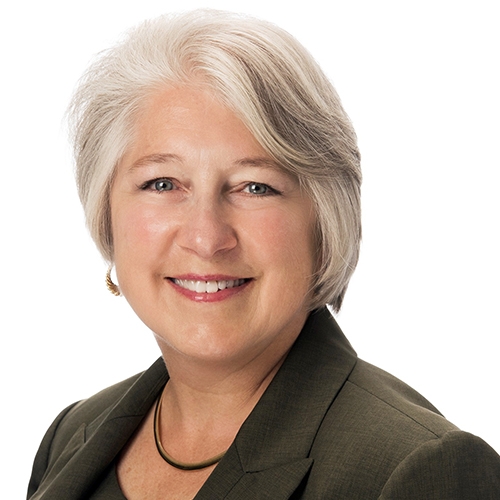
Caring for Three Generations at a Time: Clinical Perinatal Care of Individuals With Obesity

Cecilia Jevitt is the Midwifery Director and a tenured associate professor at the University of British Columbia, Faculty of Medicine. From 2013 to 2018, she directed the Yale School of Nursing’s Midwifery and Women’s Health Nurse Practitioner master’s degree programs. She has done capacity-building teaching and curriculum consultations in Switzerland, Laos, China and Ghana.
Jevitt studied midwifery at Emory University. Her 1993 doctorate in applied medical anthropology is from the University of South Florida. She established an academic division of midwifery with the University of South Florida College of Medicine while jointly appointed to the Colleges of Nursing and Public Health.
She is an elected Fellow of the American College of Nurse-Midwives and is the At Large Member of the FACNM Board. Jevitt was a Florida Nurses Association Great 100 Nurse in 2009, the 2010 Reviewer of the Year for the Journal of Midwifery & Women’s Health, the University of South Florida Department of Anthropology’s Distinguished Alumni in 2012, and a 2014 Connecticut Nightingale Excellence in Nursing Award winner.
Jevitt’s scholarship focuses on perinatal weight gain optimization and integrating obesity prevention and management into women’s health especially the perinatal and lactation periods.
Obesity affects more than 35% of women ages 20-39 in the United States. This presentation will summarize recent research that reconceptualizes obesity as adipose disease associated with smoking; socio-economic disparities in employment, education, health care access, food quality and availability; and environmental toxins, ultimately altering microbiomes and epigenetics. Obesity is an adaptation to an unhealthy environment more than poor individual eating choices. The female fetus forms her lifetime complement of ova during pregnancy; therefore, the effects of obesity may affect three generations in one pregnancy.
Individual prenatal care of women with obesity includes early testing for diabetes, counseling on epigenetic diets, advice supporting weight gain within national guidelines, and vigilance for signs of hypertensive disorders of pregnancy. Intrapartum care includes mechanical cervical ripening measures, patience with prolonged labor and uterotonic medication readiness in the event of postpartum hemorrhage. Postpartum care includes thrombus risk amelioration through early ambulation, use of compression stockings and anticoagulation. Delays in lactogenesis II can be offset by measures to support early breastfeeding. Sociopolitical actions for midwives at national, state and community levels to reduce population disparities in racism, education, employment; reduce pollution from obesogenic chemicals and improvement of food quality and distribution policies will be reviewed.

View Details / Enroll
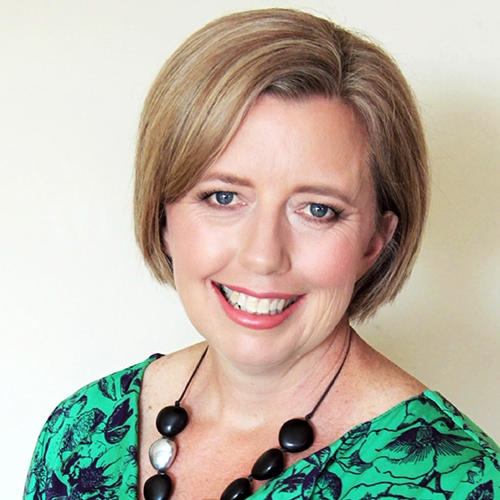
Importance of Peer Counselling and the Impact of the Pandemic on Breastfeeding Dyads in Australia

Naomi Hull is a Registered Nurse, an International Board-Certified Lactation Consultant (IBCLC) and has a Master of Public Health (Nutrition).
Naomi is mum to two teenage young adults, a Rhodesian Ridgeback and five chickens. Since 2006 Naomi has been a volunteer Breastfeeding Counsellor (Cert IV Breastfeeding Education) with the Australian Breastfeeding Association, and she qualified as an IBCLC in 2010 and has worked in a small Private Practice in Brisbane. While completing her MPH at the University of Queensland (UQ) she focused her dissertation on a qualitative review of stakeholder’s perceptions of the implementation of the Australian National Breastfeeding Strategy (2010-2015).
Since then she has gone on to lead and coordinate a national team in the assessment of Australian breastfeeding policies and programs using the World Breastfeeding Trends Initiative (WBTi) Assessment Tool.
Naomi is the Senior Manager for Breastfeeding Information and Research at the Australian Breastfeeding Association, where she is responsible for the provision of up to date, evidence-based information for the general community and health professionals.
Peer counselling has a positive impact on duration of breastfeeding and is quite different to care provided in a health facility. The Australian Breastfeeding Association is a volunteer organisation that provides peer counselling, support and information to mothers and their families face to face but has always provided support via the telephone (National Breastfeeding Helpline), and also an online platform (LiveChat).
During COVID-19 isolation period in Australia, ABA volunteers reported anecdotal evidence of increased calls and a noticeable difference in the number of mothers calling for support to relactate or increase their supply, ABA decided to commence an in-house voluntary survey based on volunteer’s interactions with mothers on the topic of COVID-19.
This presentation will discuss discuss the features of peer counselling and how it works so well with breastfeeding support and the results of this in-house survey. The results provide insight into the impact on mothers, their main concerns, and insight around their impact on desire to breastfeed. The results also evaluate the experiences of peer support counsellors and their feelings about their volunteer role during this time.
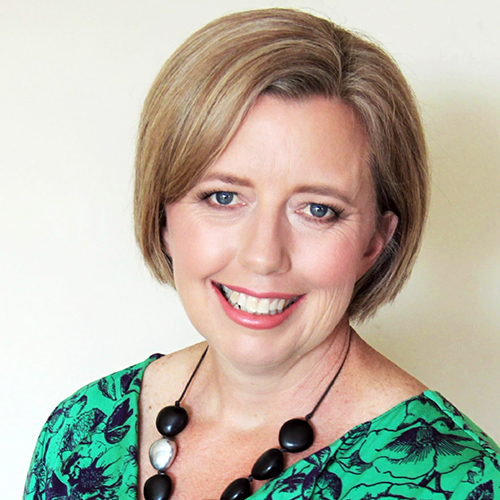
View Details / Enroll
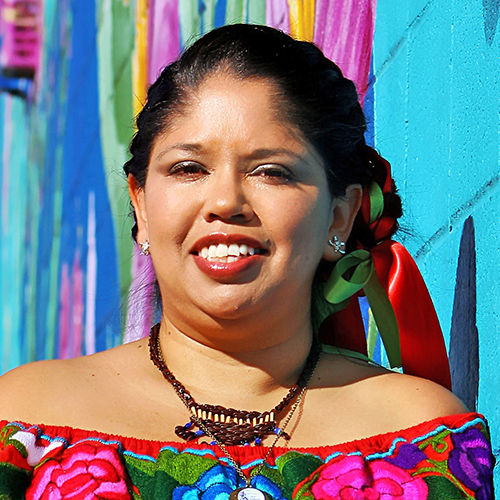
Increasing Lactation Support Through Community Partnerships

Monica Esparza is currently the Executive Director of the New Mexico Breastfeeding Task Force. She is a trained Certified Lactation Counselor and Community Interpreter who previously served families as a breastfeeding peer counselor for more than 10 years, providing peer-to-peer support to lactating families through the Department of Health Women's, Infant & Children's program both individually and in the hospital setting. She participated as a Leader in the Health Connect One Birth Leadership Academy and the NM Women of Color Leaders in Non-profit. She has served on different boards and currently sits on the National College of Midwifery Board and the New Mexico Certified Nurse Midwives Board. As a Mexican, Immigrant woman living in the south valley of Albuquerque, she brings a grassroots community approach and an equity lens into her every aspect of her work. She understands the importance of centering families and Black, Indigenous and People Of Color as a crucial step into achieve birth equity. She enjoys hiking and gardening with her husband and 2 children.
For low-income, immigrant, and rural families and their infants, access to lactation care is a critical need at one of the most vulnerable times of a child’s life. A root cause of this significant gap is the lack of lactation professionals and lactation-support training for healthcare professionals and home visitors. Knowing that home visitors are critical for families, the New Mexico Breastfeeding Taskforce (NMBTF) conducted a survey in 2020 to ascertain how to help increase home visitors’ knowledge and confidence about lactation issues so they can better support families. The survey results indicated that only 42% of home visitors had ever attended a breastfeeding class and that 100% of those surveyed could benefit from the support of lactation professionals in the communities they serve. In order to address this gap, NMBTF developed a combination of the Home Visitor Lactation Support Program and the Certified Lactation Counselors (CLC) Training programs for Lactation Education and Support Expansion in NM. First, NMBTF is piloting comprehensive lactation training for home visitors that addresses the basic lactation education they need to support the families they serve. The training program is evidence-based and includes culturally sensitive parent education, knowledge about latch and positioning, and guidance for accessing related local community resources. NMBTF partnered with home visiting programs to provide lactation education to their home visitors. Second, NMBTF worked to recruit women of color for the CLC training and provide financial aid. As CLCs, they will then be able to provide a network of expanded and enhanced lactation support in the underserved communities they serve, for their clients, and act as a resource to other home visitors.

Lies and Lactation Cookies: Raising the Bar for Breastfeeding Support Groups Online

Amy Barron Smolinski holds an MA from Union Institute and University, where her thesis explored re-emerging Sacred Feminine manifestations in the lives of contemporary women. She is the Executive Director of Mom2Mom Global, a network of breastfeeding peer support, education, and advocacy for military families. She works with breastfeeding dyads in a variety of settings, from inpatient postpartum and NICU to home visits, telephone, and online consulting as an Advanced Lactation Consultant and Certified Lactation Counselor. Supporting breastfeeding families has shown her how each parent’s breastfeeding journey with each of her children is a reclamation of her connection to her inner wisdom and power. Amy is an actress, director, and professional voice artist in Germany, where she resides with her husband and four sons, all of whom breastfed to self-weaning.
Topic: When Tears Flow and Milk Doesn’t: Support Through Breastfeeding Grief - [View Abstract]
Millennial parents live and learn on social media. Yet, much of the information available online, even through lactation “support” groups, is outdated, inaccurate, and counterproductive. Millennial parents, particularly mothers, also place pressure on themselves to get parenting “right,” which leads to a complex and dangerous blend of anxiety, guilt, and fear surrounding all of their parenting decisions. Facebook closed groups can be an effective platform for creating a virtual breastfeeding support group, but just as in real life, the groups must be properly facilitated. This presentation offers step by step guidance to creating, setting up, and maintaining a Facebook breastfeeding support group. We’ll deconstruct common controversies that occur within social media, and analyze conflict management strategies to create safe spaces online.

View Details / Enroll

View Details / Enroll

Peer Counselors In The Hospital; Taking Your Peer Counselor Program To The Next Level

Lisa Huffstetler is the mother of six children with years of personal breastfeeding experience. She has been an International Board Certified Lactation Consultant since 2011. Lisa began working with breastfeeding families as a Peer Counselor in 2008 as part of the Gaston County, North Carolina WIC's implementation of their Peer Counselor Program. She is passionate about helping new moms become successful in reaching their breastfeeding goals. Lisa is currently working as the Gaston County WIC agency's Lactation Consultant. She enjoys teaching breastfeeding classes, conducting staff trainings and working to keep staff updated on breastfeeding policy.
As a new grandmother, one of her new found interests is helping grandparents support their children appropriately in their new role as parents, especially in effective support of breastfeeding.
Hospital visits from a Peer Counselor just after delivery can have a tremendous impact on breastfeeding for mom and baby. Evidence-based research shows that Peer Counselors can share an important role in the success of breastfeeding for families. Peer Counselors making an early connection and reminding families that there is someone here to help them with their breastfeeding journey, now and after mom and baby discharge from the hospital, can be very comforting for those nervous new parents. Often, a short visit from a Peer Counselor to reassure a new mother that she is right on track with breastfeeding is just what mom needs to encourage her for the learning period she is going through. Learn about the success stories of a Peer Counselor Program from the implementation of hospital visitation through years of success in hospital visits and the difference it has made in their Peer Counselor Program participation and breastfeeding numbers.
There are challenges to getting Peer Counselor hospital visits started. It may not be as easy to get your foot in the door as you would think. We will discuss some of the red tape situations you may encounter as you start trying to set up hospital visits. Adding hospital visits to your Peer Counselor activities can have a positive impact on your Peer Counselor Program and increase breastfeeding rates for your area.

View Details / Enroll

View Details / Enroll
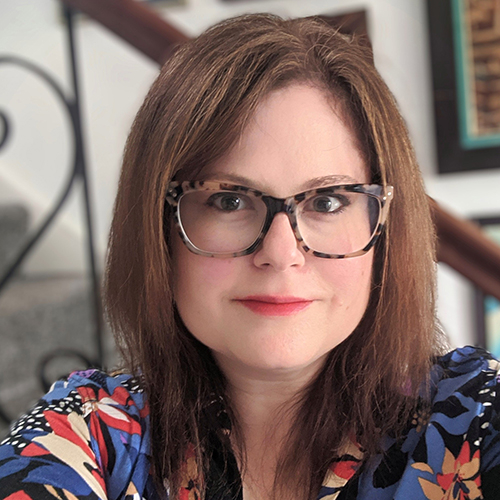
Reflections on a Breastfeeding Peer Counselor Program in Lebanon: Lessons Learned and Looking Forward

Tamara Drenttel Brand holds an MA in Near Eastern Studies from the University of Arizona and a Master’s in Public Health (MPH) from the American University of Beirut. She spent 10 years in the Middle East, where she worked as a public health practitioner, infant and maternal health consultant and an IBCLC. She has supported breastfeeding dyads from all over the world both in private practice and as a volunteer. In 2011, she founded and still actively facilitates “Mama 2 Mama Beirut Breastfeeding Support,” the largest breastfeeding peer support network in the Middle East (currently at 25k+ members). Additionally, she founded Galactablog, a professional group for lactation specialists and those aspiring-to-be (currently at 4.7k+ members) and has authored several articles for La Leche League’s monthly leader publications in both the Middle East and Ireland.
She is currently an international speaker on the topics dealing with breastfeeding in the Middle East, innovative lactation teaching strategies, working in resource-scarce settings, providing culturally sensitive lactation support, developing and implementing peer counselor training programs, mast cell disease and other related topics. Due to her own chronic health conditions, she has a special interest in educating others about mast cell disease and supporting those with chronic illnesses. She currently resides in a seaside village in Ireland with her family.
Topic: Contextualizing Breastfeeding in Lebanon - [View Abstract]
Topic: Lactation Education Outside the Box: Innovative Teaching Strategies to Engage Your Audience - [View Abstract]
Topic: Mast Cell Diseases and Lactation Care in the Post-Covid Era - [View Abstract]
Topic: Providing Culturally Sensitive Support for Breastfeeding Muslim Families - [View Abstract]
Topic: Reflections on a Breastfeeding Peer Counselor Program in Lebanon: Lessons Learned and Looking Forward - [View Abstract]
Breastfeeding rates are exceptionally low in Lebanon. Only 40% of mothers exclusively breastfed through the first month and 2.4% continued to exclusively breastfeed between 4 and 5 months. In 2012, I developed, implemented and evaluated a pilot Breastfeeding Peer Counselor (BPC) Training Program in Beirut, Lebanon. I chose this format since BPCs are adaptable to local contexts and studies have shown that that improve rates of breastfeeding initiation, duration, and exclusivity in a variety of settings and across diverse populations.
The program successfully trained 8 BPCs and led directly to the establishment of the largest mother-to-mother peer breastfeeding online support network in the Middle East (over 11,000 members to date). This presentation will provide participants with the knowledge to develop, adapt, and implement their own BPC Training programs suited to their local context. In addition, this presentation will reflect upon ethical considerations of such programs and will offer guidance on the process of program evaluation. This will allow participants to identify their own program’s strengths and weaknesses, which can improve the effectiveness of subsequent organizations.
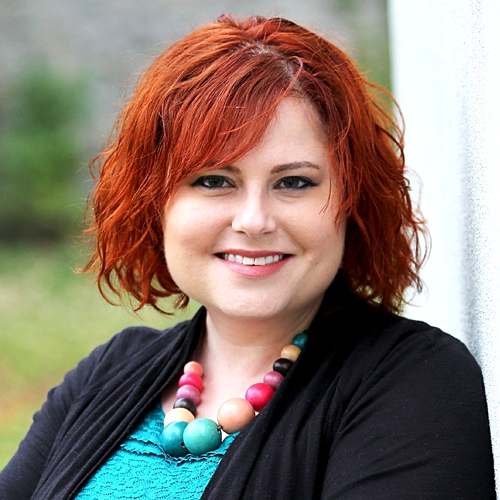
View Details / Enroll
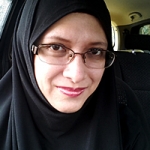
Scaling Up Skills and Reliability of Breastfeeding Peer Counselors - 7 Years of Malaysian Experience

Nadrah Arfizah Arifin (MBBS, MPH, IBCLC) is a medical professional in public health and a lactation consultant who obtained her medical degree from University of Malaya, Kuala Lumpur in 2004. Her involvement in breastfeeding support and advocacy started in 2007 as a local breastfeeding supporter at her workplace. She further involved in community-based breastfeeding support voluntarily by joining the Malaysian Breastfeeding Peer Counselor Association (MBfPCA) in 2010. She became the first breastfeeding peer counsellor of MBfPCA who successfully upgraded to become the program trainer in 2011 to 2012, thus making the framework for Train of Trainer program in MBfPCA in effort to further grow the network. She is currently the President of MBfPCA and together with other Core Trainers, they plan for sustainability of breastfeeding support by peer counsellors for Malaysian community. While doing her Doctoral degree in Public Health (DrPH), she is also working on few projects in MBfPCA particularly in capacity building of breastfeeding peer counselors with the interest of maintaining its integrity, reliability and relevancy through monitoring and evaluation of community breastfeeding support program.
The roles of peer counselors (PC) in breastfeeding support is important to reach mothers and families in community as they would bridge the gaps within the warm chain of breastfeeding support. However, challenges has overcome in many forms, especially their reliability in providing breastfeeding support skills and knowledge. Malaysian Breastfeeding Peer Counselors (MBfPC) program has started in 2010 to enhance breastfeeding support for Malaysian community. Its training syllabus were adapted and modulated to be culturally acceptable. More than 500 PCs were trained.
The original syllabus was continuously being revised prior to each training since Malaysia is multicultural with great diversity, with few adaptations of new tools to enhance the understanding among the trainees whom majority are not health personnel. MBfPC Association (MBfPCA) is responsible to reliability queries by other parties, thus overseen the needs for MBfPC training reform. Three training levels were introduced in 2016; entrance, advanced, and train-of-trainers; to increase reliability of certified PC, even though the sustainability of the network is yet to be observed. The mechanisms used to select, train and certify the PCs had strengthened the roles and functional relevancy of MBfPCA existence in Malaysian scenario. This presentation will share the challenges and framework of capacity building among PCs to function as breastfeeding peer supporters in Malaysian context.

View Details / Enroll
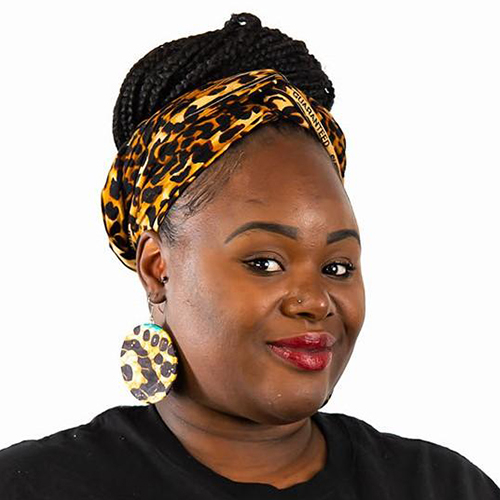

Brandi Gates-Burgess is a Lactation Consultant at Highland Hospital, Community Engagement specialist for the MILK Research Lab, serves on the Community Advisory Board of the UCSF Preterm Birth Initiative, and Co-chairs The Breastfeeding Cultural Outreach Taskforce (BCOT). Recently, Brandi transitioned from her 16-year career providing lactation support to families of the California WIC Program and decided to live her dream. She started her non-profit organization Breast Friends Lactation Support Services where she provides group lactation education and support to Black Families in the Bay Area. She is a mother to 4 breastfed children, wife and world traveler.
In Alameda County, Black women are initiating exclusive breastfeeding, but only ~15% remain breastfeeding by 3 months. For impoverished Black women, especially those in their teen years or who may have less than high school education, these numbers are even lower (9-12%). There is minimum breastfeeding support for black families.
When Black mothers in West Oakland who received peer and professional breastfeeding support through Breast Friends, exclusive breastfeeding at 3 months rose to 63%. This project expanded the Breast Friends model to East Oakland while also training 12 new peer counselors (including 1 father), 24 new group facilitators, and enhancing breastfeeding messaging in the California Black Infant Health program. The project surpassed our expectations. 5 out of the 12 trained peer counselors are now working in other community organizations as Community health outreach worker, peer counselors, doulas and WIC staff.

View Details / Enroll
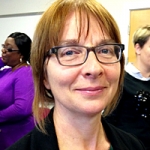
“I just really wanted to breastfeed” - The Impact of Stress on Birth & Baby Feeding in a UK Multi-Ethnic Community

Sally is an IBCLC in Leicester, UK, and has been supporting families there, particularly families from BME communities, for 15 years. Her interest in multi-culturalism and diversity has grown, from teaching French in a large community college, to her current role leading Leicester Mammas CIC, a city-wide community breastfeeding peer support programme developed and delivered by and for local mothers. She has previously been a La Leche League leader, and was part of the pioneering LLL Peer Counsellor Programme team, under the leadership of Sarah Gill, who brought the LLLPCP from the US to the UK. A core element of her approach to protecting, promoting and supporting breastfeeding is its role in the wider society: mitigating poverty, health inequalities and social isolation, and creating strong communities of women from all walks of life. She is has recently completed an MA in Integrated Provision for Families in Early Years. Sally is Deputy Chair of LCGB (Lactation Consultants of Great Britain).
Breastfeeding is valued among BME parents in the UK for cultural/religious reasons. BME communities experience high levels of stress associated with socio-economic inequalities and other factors. Women experiencing depression and anxiety may find breastfeeding alleviates or exacerbates their symptoms, dependent on the quality of breastfeeding support received, and success or otherwise in overcoming early challenges.
Little is known however about how stress impacts on infant feeding, or how women who have faced significant stress feel about their experiences around pregnancy, birth and feeding. This study explored the experiences of mothers in a multi-ethnic, inner-city community, and the effectiveness of community breastfeeding peer support in helping overcome stress-related barriers. I also considered the experiences of the previous generation within the same community and how they compared to the current generation. I found that stress factors impacted heavily on breastfeeding outcomes. Peer support is an important factor in helping women achieve their goals, mitigating stress.

View Details / Enroll

View Details / Enroll





